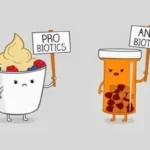The miracle of life: how donor embryos help create families
For many couples struggling with infertility, the dream of having a child can seem out of reach. But thanks to modern science and the generosity of others, there is new hope through embryo donation programs.
Just as donated organs can save lives, donated embryos can help create new lives. These tiny bundles of cells, formed from eggs and sperm during IVF treatment, hold the miraculous potential to develop into babies. When frozen and remaining after the donors’ own family goals are met, they can offer an amazing gift to another couple yearning to be parents.
The Journey of Donated Embryos
The process begins with prospective donors completing IVF cycles to treat their own infertility issues. Any viable embryos remaining after achieving their desired family size can be cryopreserved (frozen) for potential future use. However, storage fees add up over time, so many choose to have leftover embryos donated to science or provide them for another family’s treatment.
Donated embryos go through a rigorous screening process to ensure they meet the highest standards for quality and viability. The donors undergo extensive medical evaluations and provide detailed family health histories. Only embryos assessed as having the best potential for successful pregnancy are approved for donation to recipient couples.
The Chance for New Beginnings
For many struggling with infertility, embryo donation can be a more affordable path to parenthood compared to repeated IVF cycles using their own eggs and sperm. It avoids the need for costly ovulation induction drugs and surgical egg retrieval procedures. And it allows the chance to experience the beauty of pregnancy after years of negative test results.
Donated embryos are transferred into the recipient’s nurturing uterine environment through a relatively simple procedure. If successful, she is able to carry and deliver the resulting baby as her own biological child. The donors relinquish all rights and responsibilities, yet their selfless gift creates an enduring legacy.
While adoption is a wonderful option for building families, embryo donation offers the possibility of a couple sharing the biological connection of pregnancy. There is no difference in love for this child brought into the world in a unique way. As one parent said: “This baby is no less mine than if I had conceived it myself.”
A Life-Changing Choice
The decision to participate in an embryo donation program is a profoundly personal one for all involved. Donors take comfort knowing the embryos they could not use have the opportunity for life in another loving family instead of being permanently frozen or discarded. Recipients feel a deep sense of gratitude for this exceptional kindness from strangers.
As with any fertility treatment, there are complex emotional, ethical and legal considerations. Counseling explores the motivations and prepares all parties for the realities of third-party reproduction. With care and transparency, these remarkable programs can turn past heartache into future joy.
FAQ
- Are donated embryos just as viable as those from routine IVF? Yes, strict screening and selection criteria ensure only the highest quality embryos are approved for donation to maximize the chances of achieving pregnancy.
- How long can embryos remain frozen? Potentially indefinitely. Long-term storage in liquid nitrogen at -320°F allows extended preservation without degradation when maintained properly.
- Will I ever know the identity of the donors? Laws vary by location, but donation is generally anonymous to protect privacy. Non-identifying medical histories are available.
- Is embryo donation accepted by all religions/cultures? Views differ across faiths and communities. Prior consultation with spiritual/cultural leaders is advisable to ensure the process aligns with personal beliefs.
Conclusion Modern reproductive technology and the compassion of donors who have completed their families can provide a remarkable gift for others. Embryo donation programs open new paths to parenthood, making dreams of cradling a newborn a reality after years of struggle. For many, these tiny miracles encapsulate hope, new beginnings and unconditional love.







